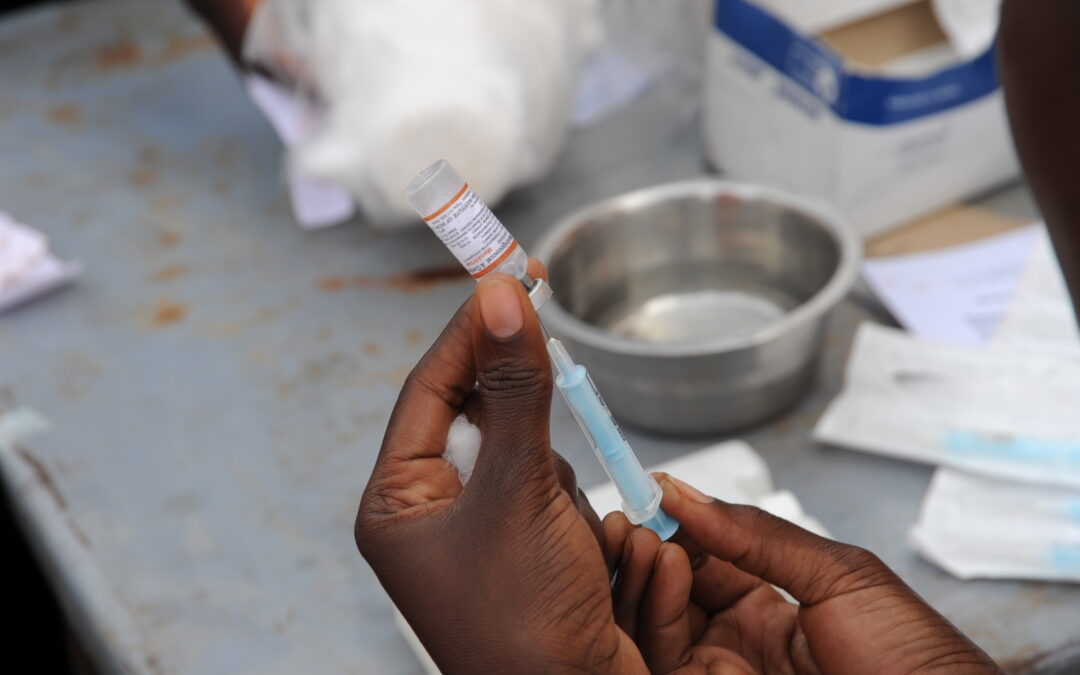
Feb 15, 2021 | News
On 15 February 2021, the International Commission of Jurists (ICJ) addressed the UN Committee on Economic, Social and Cultural Rights (CESCR) during the opening of its 69th Session.
Drawing the CESCR’s attention to States’ continued failure to make provisions to meet their obligations under the right to health, the ICJ highlighted States’ obligations to:
- Procure COVID-19 vaccines;
- Produce, publicize and implement comprehensive vaccine rollout plans;
- Ensure non-discriminatory access to vaccines to all people, including to undocumented persons;
- Cooperate with other States to ensure equitable vaccine access globally; and
- Ensure continued access to effective remedies, including judicial remedies, for human rights violations, including of the right to health.
ICJ Legal Adviser on Economic, Social and Cultural Rights, Timothy Fish Hodgson, said:
“Equitable access to COVID-19 vaccines is a right, not a privilege. States are obliged to plan transparently and clearly for the provision of vaccines. In doing so, they must be guided by human rights standards, including those relating to the right to health. Particularly at this time, it is imperative that Courts be accessible and operational to ensure the enforcement of this right.”
Applauding CESCR’s statements on COVID-19 in general and vaccine access in particular, the ICJ’s submission encourages the Committee to make full use of the Convention’s State reporting procedure to provide crucial and specific guidance to individual States on how best to ensure compliance with their Covenant obligations under the right to health in the context of COVID-19.
The ICJ’s submission provides alarming examples of various States’ failure to respect, protect and fulfil the right to health, including the refusal of some States to take steps to procure vaccines at all. Such States include Tanzania, Burundi, Eritrea and Madagascar.
Notable too is Israel’s explicit flouting of its obligation to ensure vaccine access to Palestinians living in the Occupied Palestinian Territories, and the policy decisions of countries such as Guatemala, El Salvador and Costa Rica to inhibit access to vaccines for migrants by requiring prohibitive documentary access as a precondition.
The ICJ’s submission also addresses the large divide between vaccine access in Global North and Global South countries. Some States, notably in the Global North, have procured enough doses to vaccinate their population several times over, while others, especially in the Global South, have not been able to begin the process because of limited availability and purchasing power. Despite these inequalities, many wealthier countries continue to ignore the recommendations of CESCR and the advice of a large range of UN Special Procedures by opposing a WTO intellectual property waiver which would assist in ensuring the affordability of vaccines for all States.
To read the full statement, click here: Universal-CESCR-Opening-Statement-2021-ENG
Contact
Timothy Fish Hodgson, Legal Adviser on Economic, Social and Cultural Rights, t: +27828719905, e: timothy.hodgson(a)icj.org
Tanveer Jeewa, Media and Legal Consultant, e: Tanveer.Jeewa(a)icj.org
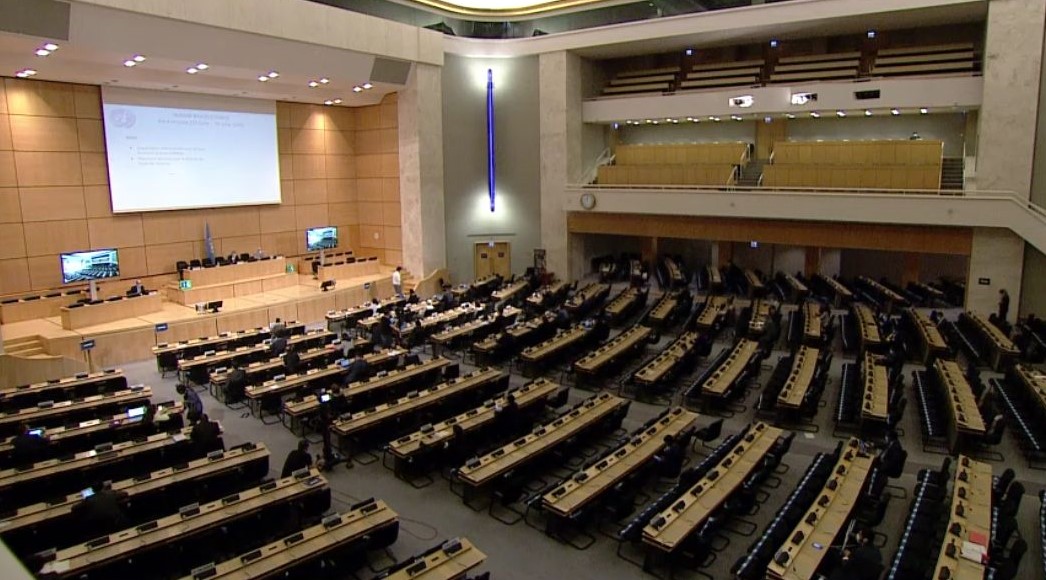
Feb 12, 2021 | Advocacy, Non-legal submissions
The ICJ today addressed an emergency Special Session of the UN Human Rights Council on Myanmar, outlining violations to human rights and the rule of law occurring in the country since the coup d’état of 1 February.
The Special Session is expected to adopt a resolution to address “The human rights implications of the crisis in Myanmar.”
The ICJ statement read as follows:
“Madame President,
The International Commission of Jurists condemns the Myanmar military’s unlawful seizure of authority and the unconstitutional declaration of a state of emergency on 1 February.
These actions defy core rule of law principles and provide an illegitimate basis for the suspension and erosion of human rights.
Nearly 200 people, including human rights defenders, have been arbitrarily detained, some in unknown locations. Security forces have used excessive force against peaceful protesters, causing serious injuries.
Regulations imposed pursuant to the state of emergency grant military forces nearly complete impunity. Furthermore, these regulations suspend crucial judicial remedies for violations of rights, such as the writ of habeas corpus.
Judges, including from the Supreme Court, have been illegally removed and replaced, undermining the independence of an already embattled judiciary.
The military takeover further endangers the already grave situation of the Rohingya community.
The ICJ calls on the Human Rights Council to urge the military to immediately return authority to the civilian government and allow immediate access to the Special Rapporteur on Myanmar and other special procedures, the OHCHR, and the Independent Investigative Mechanism for Myanmar, whose mandate includes investigating all serious human rights violations.
Member States should take necessary measures to ensure truth, justice and accountability for crimes under international law, including by supporting all relevant accountability mechanisms.
Thank you.”
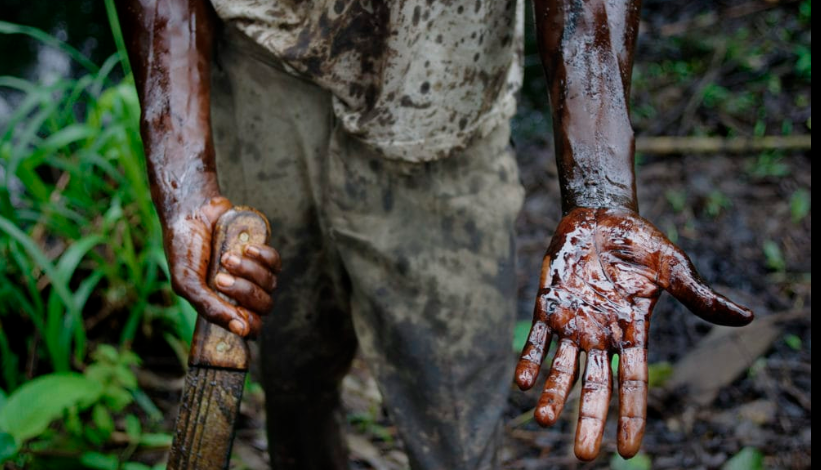
Feb 12, 2021 | Cases, News
Today, the ICJ and The Corporate Responsibility (CORE) Coalition UK, welcomed the judgment of the UK Supreme Court in the case Okpabi et al. v Royal Dutch Shell plc et al as a major step forward for those seeking access to justice for corporate abuses in the Niger Delta and around the world.
The Supreme Court judgment allows the case to proceed in the UK courts, reversing earlier decisions by the Court of Appeal and the High Court, and reaffirming the precedent established in its own previous decision in Lungowe et al v Vedanta resources (2019).
Carlos Lopez, Senior Legal Advisor at the ICJ, said:
“The emphasis of the Supreme Court on the relevance of evidence from internal company documents is of utmost importance for the proper assessment of whether the parent company intervened, advised or controlled the relevant activities of its subsidiary that caused harm, including notably human rights abuses and environmental destruction.
“This should have an impact on future similar proceedings before courts in the UK and elsewhere.”
Mark Dearn, Director of CORE, said:
“This landmark ruling is a vital step towards justice for some 50,000 claimants from the Ogale and Bille communities. It sends a clear message to multinational corporations like Shell – you have a duty of care and you will be held to account for human rights abuses and environmental damage caused by subsidiaries you control.
“Shell brazenly claimed in court that the oil spills were due to ‘uniquely Nigerian problems’. But the unique problem long faced by communities in this region is Shell’s impunity, as it has repeatedly tried to dodge accountability for its catastrophic destruction of the environment and people’s livelihoods.”
“It’s now crucial that governments step up to the plate to create new corporate accountability laws so that businesses know exactly what is expected of them.”
In Vedanta, the Court affirmed that a parent company that sufficiently intervenes, controls or advises the relevant operations of its subsidiary may bear liability for the breach of its duty of care towards the people affected by those operations.
Okpabi and other nearly 50,000 claimants in total – sued Royal Dutch Shell (RDS -the UK based parent company) and its Nigerian subsidiary Shell Petroleum Development Corporation (SPDC) for their alleged involvement in the leakage of oil pipelines which destroyed their farming land, wiped out fish stocks and poisoned drinking water in the Niger Delta, Nigeria.
In 2018 the Court of Appeal dismissed the claimants’ case, but the claimants appealed to the Supreme Court. The ICJ and the CORE Coalition intervened before the Supreme Court.
The Supreme Court has allowed the claim to proceed, focusing on whether the claim had a real prospect of success and the high relevance of the internal company documents for a proper assessment.
Find the judgment here.
Notes to Editors:
- This case was first launched in 2015 in the UK High Court. For a timeline of the case’s passage through the UK court system, see here.
- The ICJ and CORE Coalition submitted a legal brief to the Supreme Court setting out the applicability of comparative law and standards regarding companies’ responsibilities in relation to human rights and environmental protection. These standards showed that Royal Dutch Shell PLC (Shell) could have duty of care in relation to the communities affected by its Nigerian subsidiary’s activities.
- In 2018 the Court of Appeal dismissed the claimants’ case, ruling that Shell did not exercise sufficient control over its subsidiary SPDC for Shell possibly to hold a duty of care towards those affected by the oil spills.
- The Supreme Court judgment reverses that judgment, cautioning against dismissing such claims in “mini-trials” without proper access to all relevant facts and evidence that are in great part in the power of the company. The judgment clarifies the evidential threshold needed for the courts to hear such cases in the UK: “The resolution of the jurisdictional challenge depended upon whether the appellants’ claim satisfied the summary judgment test of real prospect of success.” (para 127 ref. Vedanta at para 45)
- In another section the Court also corrected the Court of Appeal’s view that the promulgation by a parent company of group wide policies or standards can never in itself give rise to a duty of care, saying: “that is inconsistent with Vedanta. Group guidelines … may be shown to contain systemic errors which, when implemented as of course by a particular subsidiary, then cause harm to third parties.” (para 143)
- In Lungowe v Vedanta Resources plc, which CORE and the ICJ similarly filed a joint intervention, the Supreme Court ruled that a duty of care was owed by the UK parent company, Vedanta. A settlement was subsequently reached. As the Supreme Court notes, this ruling was “very relevant to both the procedural and the substantive issues raised on this [Okpabi v Shell] appeal”.
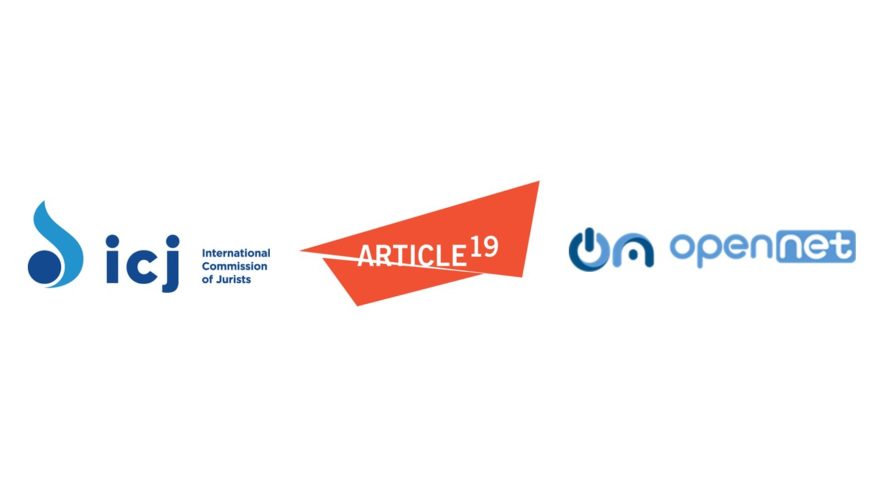
Feb 12, 2021 | Advocacy, News
The Myanmar military should immediately abandon the draft Cyber Security Law and end Internet restrictions it has imposed since taking power in a coup on 1 February, said ARTICLE 19, Open Net Association, and the ICJ today.
“It is telling that controlling cyberspace is one of the top priorities of the Myanmar military, which seized power through an illegitimate coup d’etat only last week,” said Sam Zarifi, ICJ’s Secretary General. “The military is used to having total power in Myanmar, but this time they have to face a population that has access to information and can communicate internally and externally.”
Under international law, the rights to freedom of expression and information may only be restricted if prescribed by law, in pursuit of a legitimate aim, and necessary and proportionate to that aim. This right applies equally online. In 2018, the UN Human Rights Council condemned ‘all undue restrictions on freedom of opinion and expression online that violate international law’.
“Having illegally seized control of government, the military is trying to ram through a hugely problematic law that would imperil the Myanmar public’s ability to share and access information online,” said Matthew Bugher, ARTICLE 19’s Head of Asia Programme. “The draft law is further evidence of the military’s intent to control online discourse and permanently undermine Internet freedom in the country.”
Human rights bodies and experts have repeatedly condemned Internet shutdowns, which are inherently unnecessary and disproportionate irrespective of their purported objectives. Four UN special procedures with mandates from the Human Rights Council stated in their 2011 Joint Declaration on Freedom of Expression and the Internet that, ‘Cutting off access to the Internet, or parts of the Internet, for whole populations or segments of the public (shutting down the Internet) can never be justified, including on public order or national security grounds’. The UN Human Rights Council has repeatedly called on Myanmar to lift Internet restrictions in the country.
Anonymity is furthermore crucial to protecting the right to freedom of expression and other human rights, including the right to privacy. UN Human Rights Council Resolution 38/7 recognizes that ‘privacy online is important for the realization of the right to freedom of expression and to hold opinions without interference, and the right to freedom of peaceful assembly and association’. The UN Special Rapporteur on freedom of expression in a 2015 report stated that restrictions on encryption must confirm to the three-part test on restrictions to the freedom of expression noted above.
“The ban on online anonymity in the cybersecurity law is not just bad for Myanmar but sets a dangerous precedent for the whole of Asia”, said Kyung Sin Park, Executive Director of Open Net Association, whose founders spearheaded a successful constitutional challenge against a similar law in South Korea in 2012. “The content takedown provisions and criminalization of online speech in the draft law are extremely broad and utterly lacking due process even in comparison to other Asian countries. The proposal smacks of a legislative attempt to extend the powers the military had taken in an unlawful, anti-democratic coup.”
ISPs, online service providers (as defined by the draft law to mean content providers) and other stakeholders have only been given until 15 February for input. This is a clear indication that the military has no intention of engaging in meaningful consultation.
On 10 February, a group of 158 Myanmar civil society organizations released a statement rejecting the draft Cyber Security Law, while reiterating their view that the Myanmar military could not legitimately exercise legislative authority.
“All online service providers inside and outside the country should be alarmed at this intrusion of military authority into cyberspace and refuse to implement these hugely problematic restrictions,” said ICJ’s Sam Zarifi.
SPECIFIC PROBLEMATIC PROVISIONS OF THE DRAFT CYBERSECURITY LAW (based on an unofficial translation of the draft law):
Many provisions in the draft law are vague and overbroad, in contravention of the principle of legality. If enacted, the draft law would greatly extend the powers of military authorities to restrict and punish online expression.
The law provides overarching control to the military’s ‘State Administration Council’, a newly-formed body appointed by the Commander-in-Chief. The direct military control of Internet service provision and its role in the policing of content online is in and of itself cause for alarm. Further, the military should in no circumstances be charged with protecting personal data.
Section 29 of the draft law is overly broad as it demands the prevention, removal, destruction and cessation of a broad and vaguely defined range of expression, including online comments deemed ‘misinformation’ or ‘disinformation’, any expression that causes hate and risks disrupting unity, stability, and peace, and ‘written and verbal statements against any existing law’.
Under section 64, any person convicted of creating ‘misinformation’ and ‘disinformation’ with the intent of causing public panic, loss of trust or social division in cyberspace is punishable by three years’ imprisonment, a fine, or both.
International human rights bodies have repeatedly urged governments against laws that create ‘false news’ offences, warning about their potential abuse by governments to suppress criticism and other forms of speech protected by international human rights law.
Section 30 threatens the right to online anonymity by requiring online service providers to retain usernames, IP addresses, national IDs, and other personal data for up to three years, and to provide this information to authorities upon request. For this purpose, Section 28 requires an online service provider to ensure that any device that stores the user’s information must be kept in a place designated by the relevant Ministry.
The draft law also has overly broad catch-all provisions in Sections 61 and 73 respectively whereby online service providers that fail to comply with any provisions of the draft law face a maximum penalty of three years’ imprisonment and a fine and individuals failing to comply with any rules, regulations, notifications, orders, directives, and procedures issued under the draft law are subject to one year’s imprisonment and a fine. These sanctions which are punitive in purpose and effective are non-compliant with the requirement of proportionality under international human rights law and standards on freedom of expression.
The draft law also provides for enhanced power to control the Internet without the benefit of judicial review by independent civilian courts. In the ‘public interest’, a ministry approved by the State Administration Council may temporarily prohibit any online service or take control of devices related to online service provision, as well as permanently ban any online service provider. This is a less stringent standard than that provided under the problematic and much-criticized section 77 of the Telecommunications Act, which allows for shut downs or control of telecommunications in an ‘emergency situation’.
Download
Statement in Burmese.
Contact
Osama Motiwala, ICJ Asia-Pacific Communications Officer, e: osama.motiwala(a)icj.org
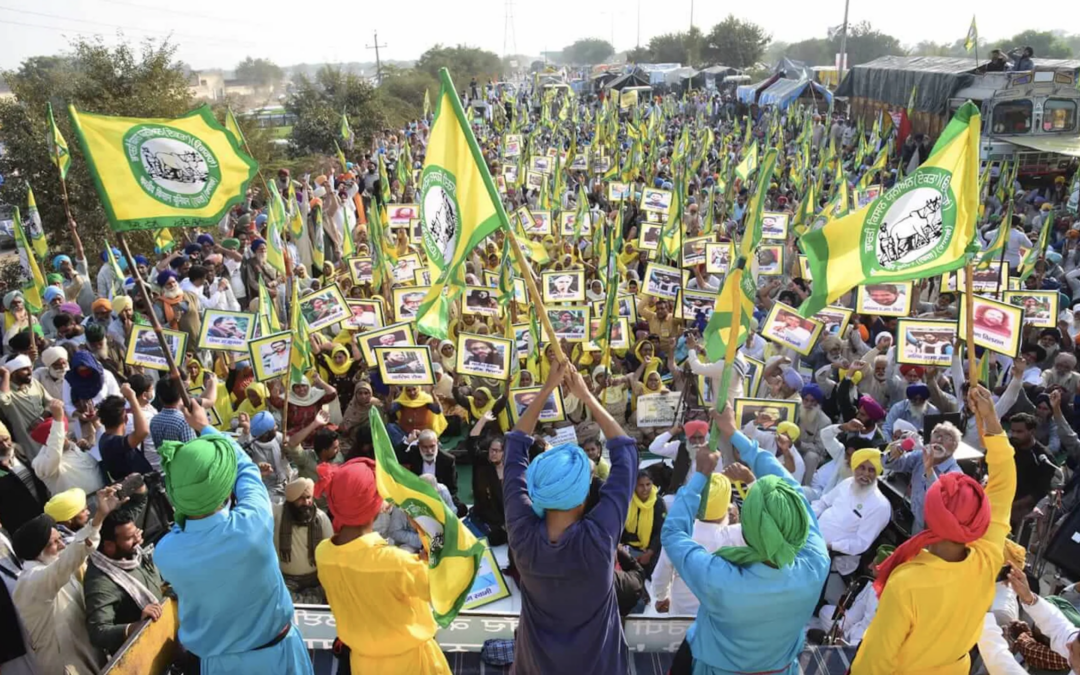
Feb 11, 2021 | News
The ICJ today condemned the unlawful repression of peaceful protests and urged the Indian authorities to respect the right to freedom of assembly of Indian farmers who have been demonstrating in Delhi since November 26, 2020 against newly promulgated agricultural laws.
Since early February 2021, police have used metal barricades, cement walls and iron nails to block the roads leading to Tikri, Singhu, Ghazipur, the three main borders where the farmers have assembled. They have done so to prevent any vehicles from these areas entering Delhi. The barricades have also served to deny male and female farmers and their families, including children, consistent access to water and sanitation facilities. The protests at these sites over the past two months are reported to have been peaceful.
Thousands of farmers from all over India, and most heavily from Punjab, Haryana and Uttar Pradesh, have demanded the repeal of a new set of agricultural laws, fearing that these will serve to eliminate government protections for crop prices and thereby impact their livelihoods.
Two journalists were detained and assaulted for reporting from the ground, while nine senior journalists have been threatened with criminal charges including sedition charges by the Indian Government. More than 125 persons, including farmers and also bystanders have reportedly been arrested largely in response to a violent clash that occurred on 26 January 2021. At least 21 farmers are reported to be currently missing.
“Rather than protecting the right to peaceful protest as required by law, the Indian authorities have cracked down on farmers in an arbitrary and aggressive manner, using unlawful force and preventing free movement as well as access to essential facilities”, said Ian Seiderman, ICJ’s Legal and Policy Director.
The Indian Supreme Court on 17 December 2020, upheld the right to protest of farmers calling it “part of a fundamental right” which can be exercised “subject to public order”. The Court has further said that “[t]here can certainly be no impediment in the exercise of such rights as long as it is non-violent and does not result in damage to the life and properties of other citizens and is in accordance with law.”
“The suppression of the right to peaceful assembly has become a pattern in India, as we saw in December 2019 and January 2020 with the mass arrests of students and human rights defenders who were protesting against the Citizenship Amendment Act,” said Seiderman.
The ICJ called on the responsible authorities to remove barricades around protest sites, enable access to water and sanitation facilities and to desist from further arbitrary arrests.
Background
The three contentious farm laws being the Farmers’ Produce Trade and Commerce (Promotion and Facilitation) Act, 2020, Farmers (Empowerment and Protection) Agreement on Price Assurance and Farm Services Act, 2020 and Essential Commodities (Amendment) Act, 2020 were brought in through executive ordinance without legislative consultation and adequate scrutiny and received presidential assent on 27 September 2020.
Farmer unions from Punjab, Haryana and Uttar Pradesh began to set up protest sites on the borders of Delhi on 26 November 2020. There have been a series of unsuccessful negotiations between the Ministry of Agriculture and Farmers Welfare and the farmer representatives. In response to the protests, the Indian Supreme Court on 12 January ordered the suspension of the “implementation of the three farm laws until further orders”. The Court set up a four-person expert committee to negotiate between farmers and the Government. However the committee’s efforts have become stalled.
On 26 January, India’s Republic Day, some tens of thousands of farmers drove into Delhi in tractors, with some protestors deviating from the sanctioned routes permitted by the Delhi Police. There were clashes with the police where one protestor was killed in the violence, and nearly 400 policemen were injured. Some protestors also entered the Red Fort, an historical monument, and hoisted the Sikh religious flag on a flagpole.
On 29 January, police and at least some private forces tried to forcibly disperse the protests on Ghazipur, Singhu and Tikri borders through stone pelting and baton charging. Farmer protestors allege that the some of those working with the police were associated with Rashtriya Swayamsevak Sangathan (RSS), the ideological outfit associated with the ruling party Bhartiya Janata Party.
On 6 February there was a three-hour blockade on state and national highways placed by farmers throughout large parts of India in protest against the agricultural laws, the government’s measures against the protestors and the reduction of budgetary allocation for farmers.
Freedom of assembly is protected under the International Covenant on Civil and Political Rights, to which India is a party.
Contact
Maitreyi Gupta, ICJ India Legal Adviser, t: +91 77 560 28369 e: maitreyi.gupta(a)icj.org









